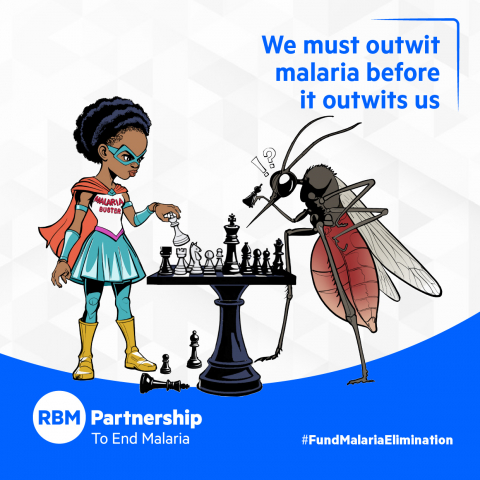29 August , 2024. BRAZZAVILLE – Malaria is keeping African families poor while straining health systems and making existing vulnerabilities such as displacement and gender inequality worse, the RBM Partnership to End Malaria has warned. RBM is a United Nations-hosted entity, that brings together over 500 partners to work towards malaria elimination.
While the past two decades saw progress in the fight against malaria, with dedicated innovation averting 11.7 million deaths from the disease, there has been a resurgence in recent years, the partnership further pointed out as they met African leaders at the sidelines of the World Health Organisation (WHO) Regional Committee for Africa meeting in Brazzaville, Republic of Congo. Africa is the hardest hit, as over 90 percent of malaria cases and deaths occur on the continent.
“This is a disease that is intersecting with other inequalities and mostly affecting people on a continent that already has complex challenges that we are yet to properly address. When malaria mixes with existing poverty, rising conflict and displacement, the vagaries of climate change and gender inequalities, it breeds an injustice that widens the gap within Africa; and between Africa and other parts of the world,”
RBM Partnership CEO, Dr Michael Adekunle Charles said as he called for a multisectoral approach that recognizes and addresses the way malaria affects other development aspects.
He said that this combination of factors is making it hard to effectively deal with the malaria parasite and the anopheles mosquito that carries it, as these two are also constantly evolving and becoming resistant.
“Biological threats in the form of malaria parasites resistant to treatment and mosquitoes resistant to insecticide are threatening our progress in the fight against malaria. We must move fast to outsmart the disease before it outsmarts us. That most of the world eliminated malaria decades ago but Africa still grapples with the disease is an unacceptable injustice – and an indication that we are not doing enough to end malaria,” he added.
An estimated 70 percent of global malaria deaths occur in 11 African countries: Burkina Faso, Cameroon, the Democratic Republic of Congo, Ghana, Mali, Mozambique, Niger, Nigeria, Sudan, Uganda and Tanzania. These countries also rank in the lower side of the Human Development Index. In March, the 11 countries signed the Yaoundé Declaration – committing to stop malaria deaths and take more decisive steps to eliminate the disease.
While the SDGs envisage ending malaria by 2030, giving it high priority alongside HIV and TB, only $ 3.5 billion has been invested in ending malaria. This is less than half of the $7.3 billion needed to eliminate malaria by the 2030 target.
Further, African governments, who are already facing weak health systems and stalling development are finding it hard to find resources to meet national malaria goals. They are collectively facing a $1.5 billion budget shortfall and cannot sustain the already inadequate coverage of essential malaria interventions.
If funding for malaria does not increase to meet the growing needs, the RBM Partnership says, this shortfall, linked to the global financial crisis and the higher cost of essential commodities, could result in malaria deaths doubling – mirroring worst-case scenarios predicted at the outset of the COVID-19 pandemic.
In Nigeria, which, at nearly 30 percent, has the highest malaria burden globally, over quarter of all admissions are due to malaria. As malaria thrives, countries that already have significant economic challenges are further strained as their health system must cater for a disease that can be eliminated.
Families in endemic countries are being pushed into poverty due to high health expenditure related to malaria. Post COVID-19, an estimated 325 million people on the continent, comprising 27 percent of the population, were pushed into poverty due to out-of-pocket expenditures on health.
“We cannot let malaria continue to strain African health systems and stop our people from reaching their full potential. As we replenish resources such as the Global Fund to Fight AIDS, Tuberculosis and Malaria, we must ensure that we distribute existing resources equitably. Like human rights, diseases, are indivisible. Health rights are indivisible and inherent for everyone no matter where they live. We must ensure that we invest adequately in fighting every disease, including malaria, without leaving no one – no country – behind to grapple without the necessary support.”
In June, an analysis by RBM and Malaria No More UK showed that getting back on track to meet the SDG target on malaria by 2030, could raise Africa’s GDP by $127 billion. This represents an average boost of nearly $16 billion a year to African economies and is more than 10 percent of Africa's annual spending on health.

